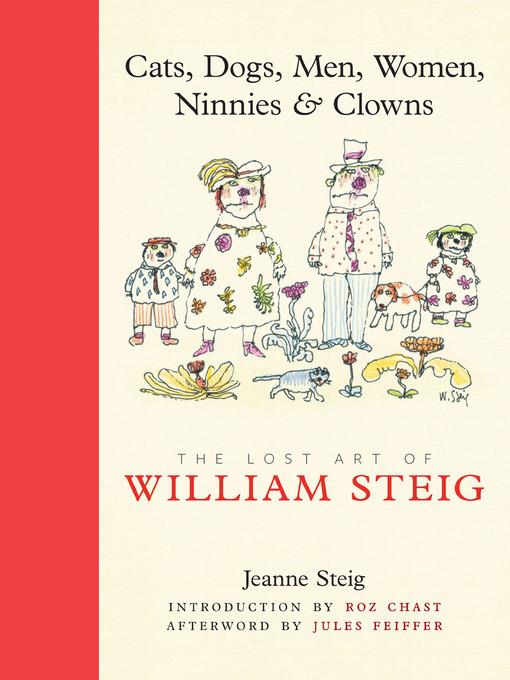
Cats, Dogs, Men, Women, Ninnies & Clowns
The Lost Art of William Steig
کتاب های مرتبط
- اطلاعات
- نقد و بررسی
- دیدگاه کاربران
نقد و بررسی

Starred review from September 12, 2011
A treasure trove of hundreds of previously unpublished illustrations by children’s book icon Steig, this compendium is organized thematically (people, dogs, “odd ducks,” etc.); the late Steig’s wife, Jeanne, introduces each section with delightful, insightful anecdotes. “He used to refer to us fondly as ‘a couple of cats,’ or perhaps more romantically as ‘two rolls on a plate,’ ” she writes. Of course, the best sense of the man behind Shrek!, Sylvester and the Magic Pebble, and other favorites is gained from the strange, free, and wholly original artwork that fill the pages with caricatured portraits, animals a’courting, drunken clowns, knife fights, and creatures impossible to name. Taken as a whole, the glorious lunacy is testimony to a true iconoclast.

November 1, 2011
Over the course of more than seven decades, the New Yorker published 1,600 cartoons and drawings, including 117 covers, by William Steig (19072003), the son of Polish Jewish immigrants. Steig also produced more than 50 books for children, winning the Caldecott Medal and creating the character Shrek. And still his wife, Jeanne, herself a children's author (Fleas!, 2008), was able to select 450 previously unpublished works to create this delectable volume of superb reproductions that capture every curlicued line and nuanced watercolor wash. Steig's psychologically acute, timeless, spirited, inventive, and provocative drawings, seeded by his love for Picasso and suggesting Chagall, express shades of adoration and rage, pride and preening, mischief and melancholy. Cartoonist Roz Chast provides a warm and knowledgeable introduction, praising unconventional Steig's decorative and loopy and loose drawing style and subtle humor. Jeanne gracefully shares sweetly funny and telling memories. Steig, she writes, was considered terrific company but preferred solitude. An entirely intuitive artist, he got the giggles watching ballet, loved the blues and Beethoven, and often said, Art is the only life. Pure pleasure from cover to cover.(Reprinted with permission of Booklist, copyright 2011, American Library Association.)

























دیدگاه کاربران